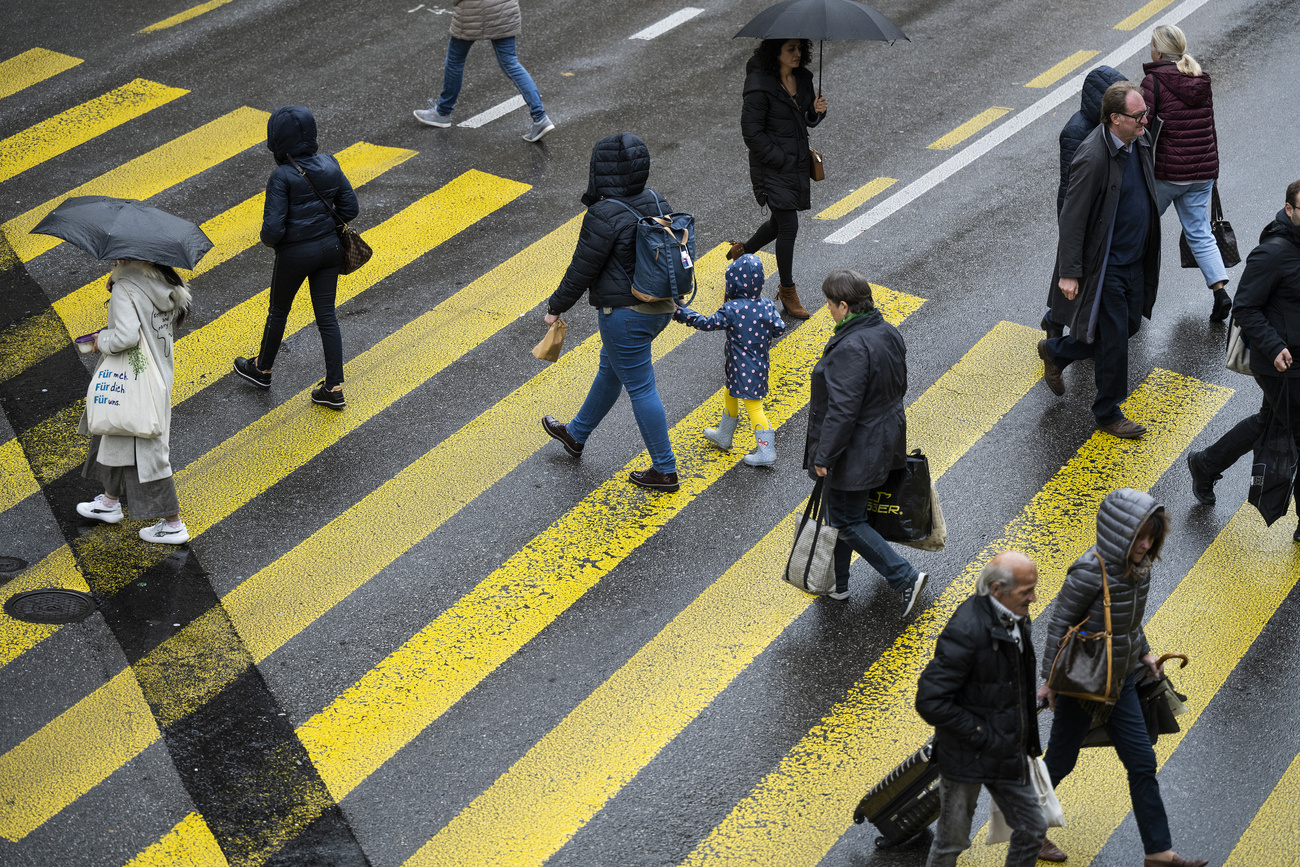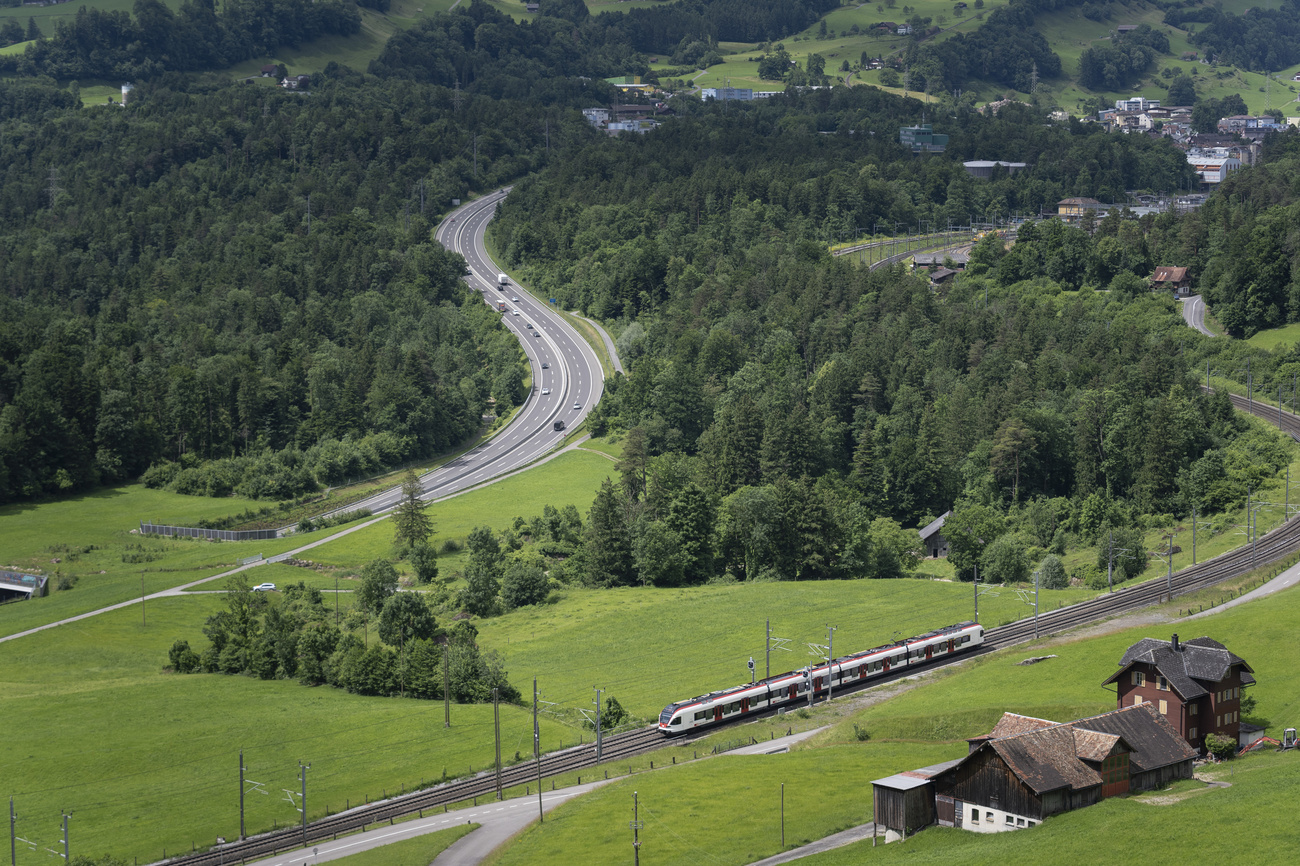

Switzerland Today
Dear Swiss Abroad,
Switzerland is among the countries with the largest foreign resident community relative to population size. Today we find out exactly how many people have a migration background.
But there are also those who, despite having built a life in Switzerland, find themselves at risk of deportation without a Swiss passport, as we will see in a personal story told to Swissinfo.
We also look at the fate of the Swiss poison reference centre.

In Switzerland, 41% of the permanent resident population has a migration background, according to Federal Statistical Office (FSO) figures for 2024.
This includes 3,086,000 people who have foreign nationality or are naturalised – with the exception of those born in Switzerland with both parents also born in Switzerland (third generation) – as well as Swiss nationals with both parents born abroad.
Around 80% (2,456,000 individuals) of people with a migration background were born abroad. After Switzerland, the most represented nationalities are Italian (9.4%) and German (9%).
According to the FSO, 40% of the resident population born abroad say they moved to Switzerland for family reasons, 38% for professional reasons. Asylum (7%) and study (5%) are also mentioned.

Although the foreign population in Switzerland is so large, there are also those who, despite having built a life here, are forced to leave. Swissinfo tells the story of Gabriela Purtschert from Ecuador.
Sixteen years in Switzerland, an exemplary academic career, a doctorate in microbiology from the University of Zurich, a Swiss surname and a Swiss family. Yet Gabriela Purtschert risks deportation. This is because, unlike her younger siblings, the 36-year-old doesn’t have a Swiss passport. “I have to leave the country, even though I’ve lived here longer than my brothers,” she tells Swissinfo.
Her exclusion from Swiss citizenship is due to a legal detail. Purtschert was born in Ecuador to a Colombian mother and an Ecuadorian father. Her mother (who later became Swiss) got together with Swiss Abroad Norberto Purtschert when Gabriela was two. Her mother and Norberto married when Gabriela was six. Norberto Purtschert then adopted her when she was a teenager. As the adopted daughter of a Swiss Abroad in Ecuador, she was not entitled to Swiss citizenship at the time of adoption. What’s more, the adoption didn’t become legally binding until she came of age. For this reason, Swiss citizenship was not transferred to her.
Her work contract at Agroscope ended in January and the migration office of canton Zurich didn’t renew her residence permit. She was therefore ordered to leave Switzerland in mid-October. Without a job, she has no right to live here.
While she continues to seek employment, she has appealed against the deportation decision. But what the future holds for her, she doesn’t know. For her, Switzerland is “a country to which I want to give something back”.

The government has presented a study by the federal technology institute ETH Zurich that defines the priorities for mobility development in Switzerland.
The study, on the basis of which the government intends to plan the expansion of the transport infrastructure, has attracted both praise and criticism.
For the period from 2025 to 2045, the study envisages a spending limit of CHF9 billion ($11 billion) for motorway projects. For railways, on the other hand, two variants are envisaged: one costing CHF14 billion and one costing CHF24 billion.
An editorial in the Tages-Anzeiger praises the study, which finally represents “a strategy for the expansion of the entire Swiss transport network instead of the patchwork of regional policies of the past 20 years”. The reaction of the Swiss Touring Club and the cantons is also positive.
However, there are those who turn up their noses. For example, the Green Party and the environmental organisation umverkehR/actif-trafiC condemn the CHF9 billion for roads, pointing out that the projects rejected by voters last year, for example to expand the motorway network, are being reintroduced.
But the debate has been launched and comes on top of the latest controversy concerning mobility, namely the government’s intention to extend the motorway sections where the 80km/h speed limit can be introduced at peak hours.

The Swiss reference centre for poisoning, Tox Info, is safe for the time being. An injection of federal funding will allow it to continue operating until at least the middle of next year, Blick reveals today.
Despite being a much-used service, Tox Info risks closure due to rising costs and declining contributions from foundations and sponsors.
The government does not intend to provide additional funding and had indicated that it is seeking an agreement with the chemical and pharmaceutical industry to support the service. However, “we will be long dead” before that happens, Tox Info president Josef Wilder said in September, during the delivery of a petition signed by 100,000 people asking the authorities to do something.
The mobilisation seems to have been successful. The government decided to pay the federal contribution of CHF600,000 ($745,000) all at once at the beginning of next year and not in staggered payments as before. According to Wilder, this is a short-term solution that will keep Tox Info alive a little longer. He now hopes that parliament will approve further funding for the medium term while waiting for a definitive solution to materialise.
Translated from Italian by DeepL/ts

In compliance with the JTI standards
More: SWI swissinfo.ch certified by the Journalism Trust Initiative






























